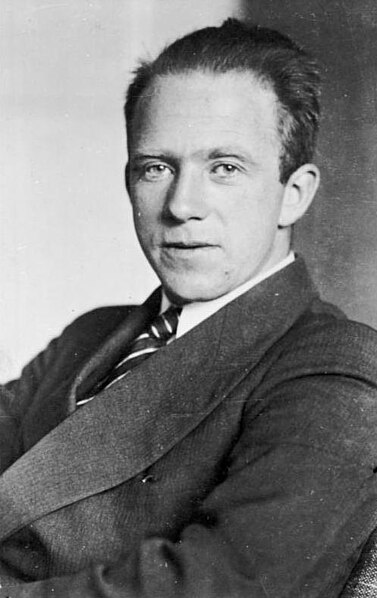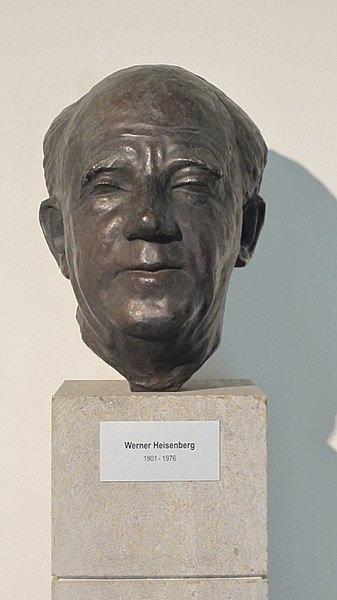Werner Karl Heisenberg was a German theoretical physicist, one of the main pioneers of the theory of quantum mechanics, and a principal scientist in the Nazi nuclear weapons program during World War II. He published his Umdeutung paper in 1925, a major reinterpretation of old quantum theory. In the subsequent series of papers with Max Born and Pascual Jordan, during the same year, his matrix formulation of quantum mechanics was substantially elaborated. He is known for the uncertainty principle, which he published in 1927. Heisenberg was awarded the 1932 Nobel Prize in Physics "for the creation of quantum mechanics".
Heisenberg in 1933
Heisenberg in 1924
Replica of the German experimental nuclear reactor captured and dismantled at Haigerloch
Bust of Heisenberg in his old age, on display at the Max Planck Society campus in Garching bei München
Quantum mechanics is a fundamental theory in physics that describes the behavior of nature at and below the scale of atoms. It is the foundation of all quantum physics, which includes quantum chemistry, quantum field theory, quantum technology, and quantum information science.
Max Planck is considered the father of the quantum theory.
The 1927 Solvay Conference in Brussels was the fifth world physics conference.






